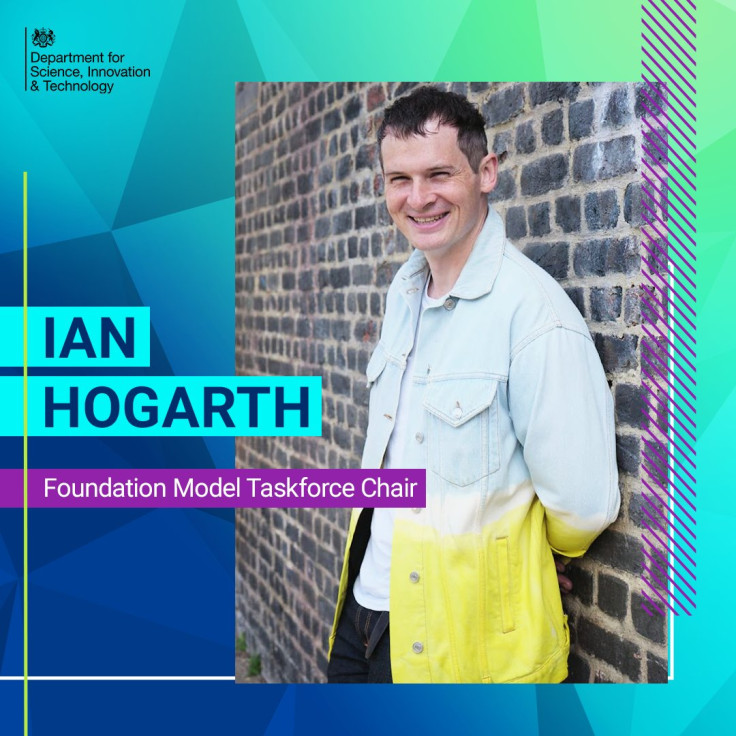Tech entrepreneur Ian Hogarth to oversee AI research as chair of the Foundation Model Taskforce
Following the announcement of the new Foundation Model Taskforce earlier this year, the government have appointed tech entrepreneur and AI expert Ian Hogarth as chair of the new body.

Amongst the most significant challenges which governments around the world face are shepherding the safe development of artificial intelligence (AI). The challenge AI presents is at least two-fold.
Firstly, the development of AI is a phenomenon that has to be cautiously managed by governments and industry players. Prime Minister Rishi Sunak has said that "we owe it to our children and our grandchildren to ensure AI develops safely and responsibly", indicating that the British government are mindful of AI safety concerns.
The risks posed by AI development have been highlighted by many including leading intellectuals Professor Nick Bostrom and the late Professor Stephen Hawking. Whilst Stephen Hawking needs no introduction, Nick Bostrom is a leading philosopher based at the University of Oxford.
Crucially, concerns exist over the implications of potentially super-intelligent AI that could outperform humans. For example, with the capacity to pursue goals autonomously with indifference to human interests.
However, AI is also a key driver of productivity and growth for nation-states seeking relative gains in a competitive multi-polar world order. Moreover, governments don't want to be left behind as their rivals take advantage of the opportunities created by new technologies within their domestic economies. Consequently, governments have to balance caution with pragmatism as AI opens up new avenues for economic progress.
The PM has explained:"The more artificial intelligence progresses, the greater the opportunities are to grow our economy and deliver better public services." Sunak also spoke about AI in a speech delivered at the London Tech Week, highlighting the benefits AI can bring to health care and education.
In order to confront the AI challenge at the domestic level, the British government announced earlier this year the creation of a new Foundation Model Taskforce. The Taskforce will work with AI leaders in industry and academia to ensure that AI is developed in a safe and trustworthy way.
It will provide leadership on AI safety research in order to develop foundation models that are "safe and reliable", whilst also taking advantage of the opportunities presented by new AI technologies. Foundation models are types of AI systems which are trained on massive data sets, possessing capabilities across a diverse range of tasks. ChatGPT, Google Bard and Claude are all examples of AI services powered by foundation models.
Yesterday (the 18th) the government announced that tech entrepreneur Ian Hogarth has been appointed as the chair of the government's Taskforce. Hogarth is a leading tech entrepreneur, renowned investor, and AI specialist, responsible for co-authoring "the annual State of AI report since 2018 on the progress of AI". As well as holding an academic position at University College London as a visiting professor, Hogarth has founded the start-up Songkick and the venture capital fund Plural, demonstrating robust experience in tech entrepreneurship.
Horgarth will now report directly to the PM, bringing his experience of the commercial world and links throughout the AI sector to the key role of Taskforce chair. The tech expert has referred to the PM's "bold vision for the UK to supercharge the field of AI safety", explaining that as AI has developed commitments to safety have been "under-resourced".
The Taskforce will now advance "cutting-edge safety research" under Horgarth's leadership, sourcing input from different domains of expertise, including government, industry and academia. The research will inform progress towards the creation of "international guardrails", including "shared safety and security standards and infrastructure".
The creation of shared safety standards and infrastructure will be the focus of the first global summit on AI safety set to be held later this year. The conference will create a forum for AI leaders across the world to cooperatively identify and analyse the risks AI presents to human civilisation.
The summit will be an opportunity for the British government to show international leadership in the development of AI safety measures. Britain is already a key player globally in the development of AI. According to the government's policy paper, "A pro-innovation approach to AI regulation", Britain ranks "third in the world for AI publications and also has the third highest number of AI companies".
Clearly, if successful and productive, the work of the Taskforce will bolster Britain's contribution to international forums which tackle the challenges presented by AI.
© Copyright 2025 IBTimes UK. All rights reserved.





















